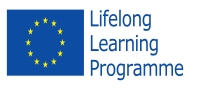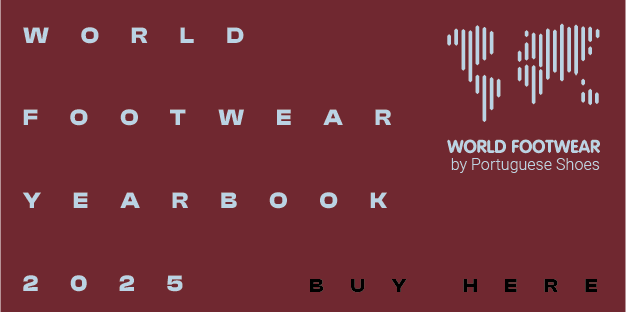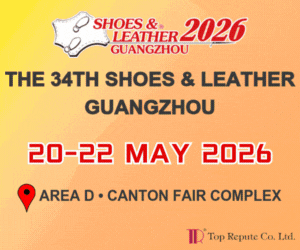European companies are recommended to diversify their markets

The words are from Cleto Sagripanti, President of the European Confederation of the Footwear Industry (CEC). An entrepreneur and a business man with extensive experience in the shoe industry
wordfootwear.com has talked to Cleto Sagripanti to hear his views on an extensive list of issues currently impacting the footwear industry. Today we bring you the first half of the interview, focusing on CEC’s activities and the European industry
The EU footwear market in the first semester
“The first six months of 2016 have halted the burgeoning growth of our European footwear industry as a whole”, said Mr Sagripanti while opening the conversation. He recognizes that this economic slow-down is not something that is impacting the footwear industry in particular but the European economy in general, as a result of a globalized fast world, where political, economic and social change occurs rapidly and impacts the industries and businesses worldwide.
As a result of such a globalized reality, Europe was impacted by many factors, occurring not only inside their borders, but also outside. Consumption in Europe has decreased partly because of terrorist attacks which have also badly hit the tourist industry in Europe, there was slow-down in China, decline in Hong Kong, difficult political relations with Russia, repercussions in neighboring countries with the added devaluation of currencies and a sluggish US market, all occurred over the last six months.
“However, I am confident that the current negative market situation will be reversed with the approaching Christmas festivities and once the international community better understands the intentions of the newly elected US president. I also anticipate that consumers will gradually put the terrorist attacks to the back of their minds and concentrate on enjoying their lives. The devaluation of the British pound, for instance, is already proving to be an opportunity for British footwear companies which have seen an increase in their sales. In any case, European companies are recommended to diversify their markets in order to anticipate any potential crisis as well as choosing multiple channels to reach consumers”, Mr Sagripanti commented.
CEC’s promotional activities
With the support of the European Commission, the CEC took the opportunity to support the entry of European footwear into new emerging markets by launching the international campaign “European Footwear: more than fashion”. In April this year the first pilot initiative brought together 36 European brands manufacturing footwear in Europe for a two-day mission to Almaty, Kazakhstan, an emerging market which has seen a rising demand in footwear products over the last 7 years and which only produces 2% of the total market turnover.
The initiative was a success according to CEC and that should lead to similar future initiatives: “The CEC has requested the Commission to consider further funding for a second destination in line with with a survey conducted across the companies participating in the mission. We believe that the success of such European trade missions lies precisely in offering to non-European consumers a wider selection of our footwear, underlining the European excellence in creativity and manufacturing”.
CEC’s European projects
In parallel with the activities carried out when representing and defending the interests of European footwear, the CEC also supports their growth and competitiveness by identifying EU funding opportunities that can help companies to anticipate or overcome challenges and needs. A variety of subjects are being addressed, with the promotion of the internationalization of companies at the head of the list, without ever forgetting access to finance and the support to employment and skills development.
“As you know, unemployment rates in Europe are high, and still, despite this, many of our footwear manufacturers are finding it difficult to secure specific technical skills. There is a clear mismatch between supply and demand. Some of the projects we are currently working on are aimed at the development of new qualifications and staffing profiles in order to address the shortage or even gaps within the footwear sector with regard to luxury products (www.highendshoe.eu), comfort (www.fit2comfort.eu), and sustainable manufacturing (www.step2sustainability. eu). From the start of the new year, we will launch a new project to analyse the emerging roles and skills in the digital fashion industries”, Mr Sagripanti concluded.





The EU footwear market in the first semester
“The first six months of 2016 have halted the burgeoning growth of our European footwear industry as a whole”, said Mr Sagripanti while opening the conversation. He recognizes that this economic slow-down is not something that is impacting the footwear industry in particular but the European economy in general, as a result of a globalized fast world, where political, economic and social change occurs rapidly and impacts the industries and businesses worldwide.
As a result of such a globalized reality, Europe was impacted by many factors, occurring not only inside their borders, but also outside. Consumption in Europe has decreased partly because of terrorist attacks which have also badly hit the tourist industry in Europe, there was slow-down in China, decline in Hong Kong, difficult political relations with Russia, repercussions in neighboring countries with the added devaluation of currencies and a sluggish US market, all occurred over the last six months.
“However, I am confident that the current negative market situation will be reversed with the approaching Christmas festivities and once the international community better understands the intentions of the newly elected US president. I also anticipate that consumers will gradually put the terrorist attacks to the back of their minds and concentrate on enjoying their lives. The devaluation of the British pound, for instance, is already proving to be an opportunity for British footwear companies which have seen an increase in their sales. In any case, European companies are recommended to diversify their markets in order to anticipate any potential crisis as well as choosing multiple channels to reach consumers”, Mr Sagripanti commented.
CEC’s promotional activities
With the support of the European Commission, the CEC took the opportunity to support the entry of European footwear into new emerging markets by launching the international campaign “European Footwear: more than fashion”. In April this year the first pilot initiative brought together 36 European brands manufacturing footwear in Europe for a two-day mission to Almaty, Kazakhstan, an emerging market which has seen a rising demand in footwear products over the last 7 years and which only produces 2% of the total market turnover.
The initiative was a success according to CEC and that should lead to similar future initiatives: “The CEC has requested the Commission to consider further funding for a second destination in line with with a survey conducted across the companies participating in the mission. We believe that the success of such European trade missions lies precisely in offering to non-European consumers a wider selection of our footwear, underlining the European excellence in creativity and manufacturing”.
CEC’s European projects
In parallel with the activities carried out when representing and defending the interests of European footwear, the CEC also supports their growth and competitiveness by identifying EU funding opportunities that can help companies to anticipate or overcome challenges and needs. A variety of subjects are being addressed, with the promotion of the internationalization of companies at the head of the list, without ever forgetting access to finance and the support to employment and skills development.
“As you know, unemployment rates in Europe are high, and still, despite this, many of our footwear manufacturers are finding it difficult to secure specific technical skills. There is a clear mismatch between supply and demand. Some of the projects we are currently working on are aimed at the development of new qualifications and staffing profiles in order to address the shortage or even gaps within the footwear sector with regard to luxury products (www.highendshoe.eu), comfort (www.fit2comfort.eu), and sustainable manufacturing (www.step2sustainability. eu). From the start of the new year, we will launch a new project to analyse the emerging roles and skills in the digital fashion industries”, Mr Sagripanti concluded.

















